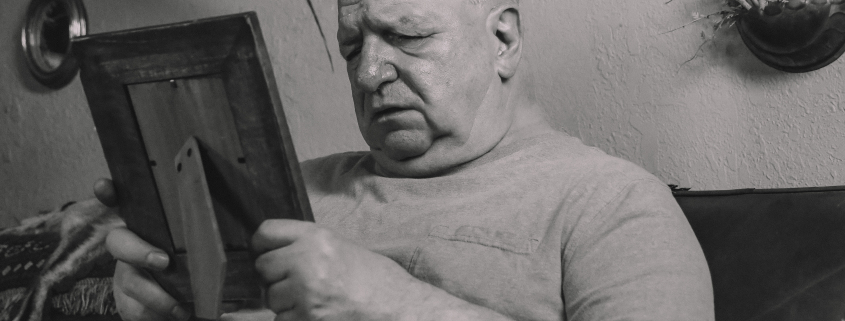How to Reconfigure Your Life After the Loss of a Loved One
When a loved one dies, it results in many different changes for the surviving family members. These changes can range from simple ones like taking on more household chores to more drastic changes such as modifying future plans or even modifying priorities. Getting used to these changes may take many months because getting out of one’s comfort zone and adapting to a new normal is usually fraught with challenges.
After the funeral services, the loss is more palpable as you try to get back to your routine. If you’ve been taking care of a terminally sick loved one with cancer, your days may have been full of hospital visits. When the person passes on, the familiar routine of caregiving ends. Similarly, if one spouse suddenly dies, it could potentially plunge the household into disorder because this could mean more responsibilities to take care of from childcare to finances.
After the death of a loved one, especially if it is sudden, you may end up questioning your spiritual beliefs because it feels unfair. You may need to take a breather to ponder on what this means for your life. Alternatively, faith could also be a huge source of comfort and hope. Definitely, death will change your goals and priorities because it forces you to reflect on what matters most. To help you cope with the stressful changes that come with the death of a loved one, check out the following strategies that can help you reconfigure your life after the loss of a loved one:
Give Yourself Time to Heal
You must be patient with yourself and give yourself and your immediate family members time to grieve. Immediately after the death of a loved one, you can expect it to be an emotionally turbulent time. Mental health counselors advise waiting at least a year before making drastic and major changes in your life. An example of this is moving to a new house or changing employment. To help you out, make a list of the tasks and decisions you need to undertake. Figure out the pressing matters that need immediate attention and make a separate list of major decisions that need more waiting time so you can discern.
Consider Delegating Responsibilities
When a loved one dies, you may face new responsibilities because the roles the deceased play in your life are now noticeably vacant. It would take time for you and your immediate family members to adjust and settle down. You may hold a family meeting, if your kids are older, to discuss chores and who will be responsible for them. You may also need to talk about changes in your routine with the kids and set new expectations.
Don’t Be Afraid to Ask for Help
Don’t be shy or afraid to ask for help, especially if you have much younger kids who cannot take care of themselves. Bear in mind that your relatives and friends are eager to offer a helping hand. They may feel reluctant to do things for fear of encroaching on your privacy. Thus, it would help to verbalize your specific needs, so they can step up to the plate. If you’re learning how to perform unfamiliar tasks, a friend can show you the ropes, too. Family and friends are the greatest sources of strength and comfort during difficult times, so don’t stay isolated and continue reaching out to your loved ones.
Seek Guidance for Financial and Legal Matters
If the departed had done estate planning before their demise, then it would be easy to carry out their wishes and plans for their estate. However, if they die intestate, you may need financial and legal help. These matters following the death of a loved one can be overwhelming and confusing. You may need to talk to a lawyer to iron out your affairs and ensure you pay any financial obligations left behind by the deceased. Consulting professional services may even save you more money in the long run, especially if you deal with probate. If money is tight, check out pro bono groups in your area.
Write Down Your Thoughts
Keeping a diary or journal is cathartic that’s why many therapists recommend it as one of their strategies for healing. Putting your thoughts into words can help you make sense of the radical changes and dark emotions you’re experiencing. It can help you dispel the heaviness you feel in your heart. Besides, writing things down can help you organize your future plans and other priorities. This can also be your record to see your progress and show how you’ve improved with the passing of time.
Consider Becoming Part of a Support Group
If you’re struggling to cope, especially if the death is sudden, consider joining a support group. This gives you a chance to talk to other individuals who have somehow walked in your shoes. You can share your feelings and experiences. Members of the support group are the best people who can offer practical advice on adjustment after a loss, and they can also give you emotional support. You may be surprised to find new friends in a support group who make you feel hopeful about facing your new life because they have gone through the same thing and recovered.
Focus on Positive Thoughts
It’s very easy to plunge into a world of sorrow and despair after a loved one dies. That’s why you have to make a conscious effort to keep thinking positive thoughts. Keep in mind that setting new goals, developing new interests, meeting new people, and learning new things can bring positive changes to your life. Feel proud of these new accomplishments as you let go and move on with life. And keep in mind that it’s not disloyal to your deceased loved one to set new aspirations for your future. In fact, the greatest way you can honor their memory is to live a full and happy life.








